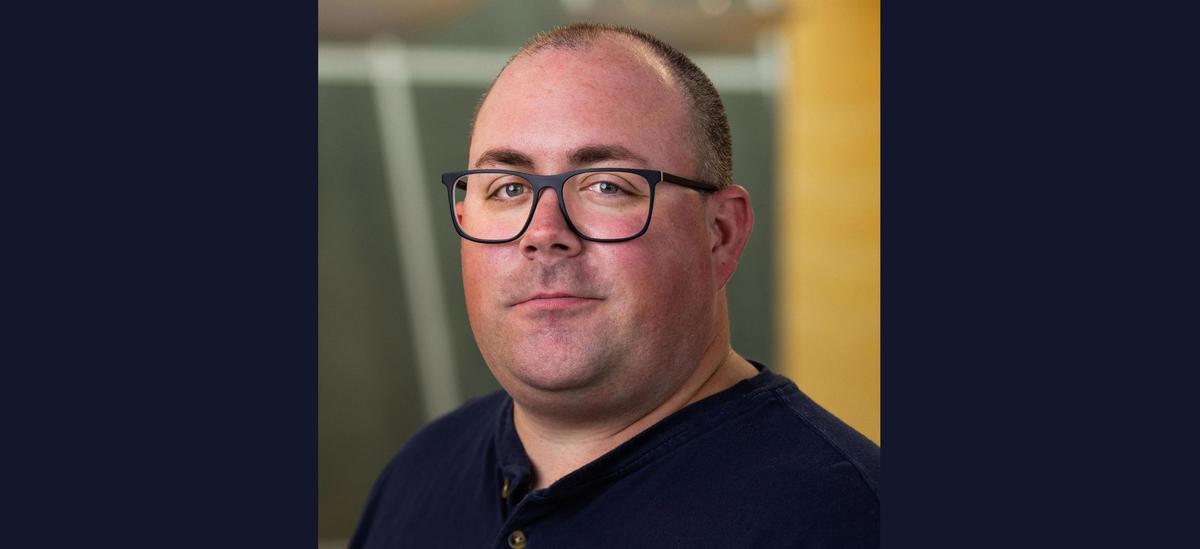When John Blanchar started looking into how people’s attitudes and behavior relate to their political views for a graduate student project in 2010, he didn’t anticipate this line of research would influence the course of his career. But Blanchar found that political psychology—although sometimes disheartening—is a rich and fascinating niche of study.
A new assistant professor in UMD’s Department of Psychology, Blanchar examines topics such as voting behavior and the reasons people are more liberal or conservative. “At the core of politics is a tug of war between tradition and change,” he says. “One side is remaking and the other is holding onto traditional or more conservative ways of life.”
As Blanchar points out, this “tug of war” has traditionally been more cordial. It used to be more common to see parties working across the political aisle. But in recent years, politics have become increasingly polarized.
The moralization of politics is deepening the divide, according to Blanchar. “Up until the 2012 election we could disagree with one another,” he explains. “Then people started characterizing others as ‘good’ or ‘bad’ people based on whether they agreed with them or not.”
The 2020 election amplified such moral judgements. Blanchar finds this trend concerning as it’s “creating political enclaves and even inciting violence,” as in the case of the U.S. Capitol attack on January 6.
Social and Informational Divide
Blanchar and a colleague conducted a longitudinal study about people’s perceptions of the 2020 election’s legitimacy. What they’ve confirmed is that people on both sides of the political spectrum appear to become more entrenched in their beliefs the narrower their social networks and news sources get.
Though it’s part of human nature to seek out similar or like-minded people for relationships, this move toward siloing along political lines is making matters worse. “We’re missing new information and perspectives from other people,” Blanchar says. “This results in an echo chamber where people’s beliefs are only reinforced and they become more confident about their conclusions.”
A related issue is that Democrats and Republicans get their news and information from vastly different sources. “We’re losing common information that ties us together. If an event occurs there are now two distinct versions that become dominant,” says Blanchar.
Blanchar characterizes what’s happening as a “bifurcation of social reality”—where two distinct narratives emerge in response to daily events. People may feel as if they’re pitted against one another or morally superior to the other.
The stress of living in such a divided nation has been tied to depression and declines in mental health. “It’s hard to live happily and socialize when half of the country is a threat to your existence,” Blanchar says.
Another impact of this divide, is that people are “sorting themselves” in terms of where they live and work based on their political values. Blanchar’s research has found that it’s common for people to move or switch jobs to find neighborhoods and workplaces that better align with their views and values.
“When someone feels like an outlier, it affects their fundamental motivation to belong,” he explains. “If you have the lone Biden or Trump sign in your neighborhood it doesn’t feel good.”
Bridging the Divide
In his recent paper, Blanchar concludes that “developing interventions for breaking partisan ‘echo chambers’ could help mitigate the effects of extreme and false claims from seeding distrust in democratic elections.”
When asked about such interventions, Blanchar says there are no easy fixes. Recognizing one’s own potential bias is a starting point. He points out that it’s naive to assume that people can see the world objectively given the influence of friends, family, co-workers, news and social media.
Blanchar believes that getting people with different beliefs to interact with one another more openly, more often can help. People may find common ground through such interactions. It’s harder to hate someone that you know.
Changing news consumption habits may help as well. Blanchar says being exposed to different types of news is important for empathizing with the other side. “I make concrete efforts to read partisan sources even though it can be frustrating to do so,” he says. “It’s like a diet. It’s hard to do and may feel unpleasant but it’s ultimately better for you.”
